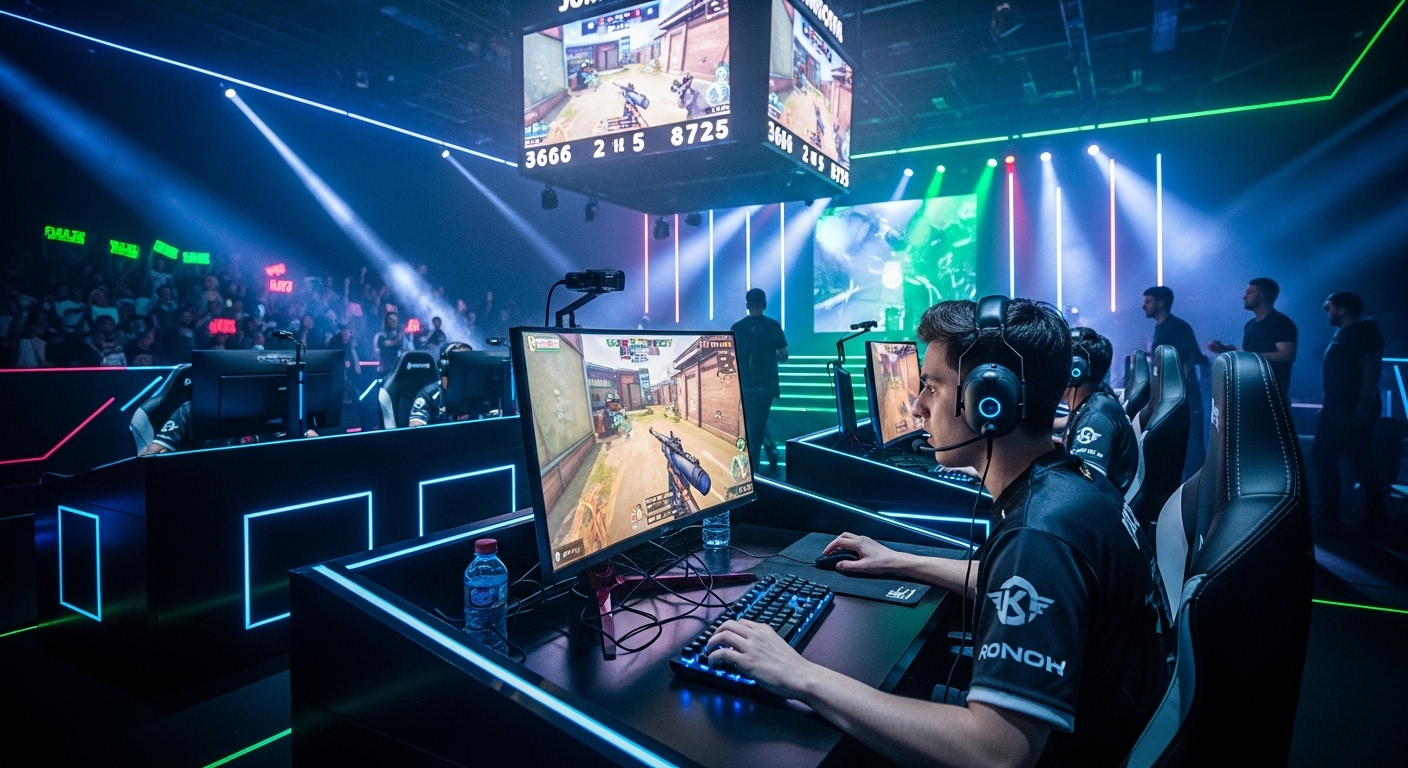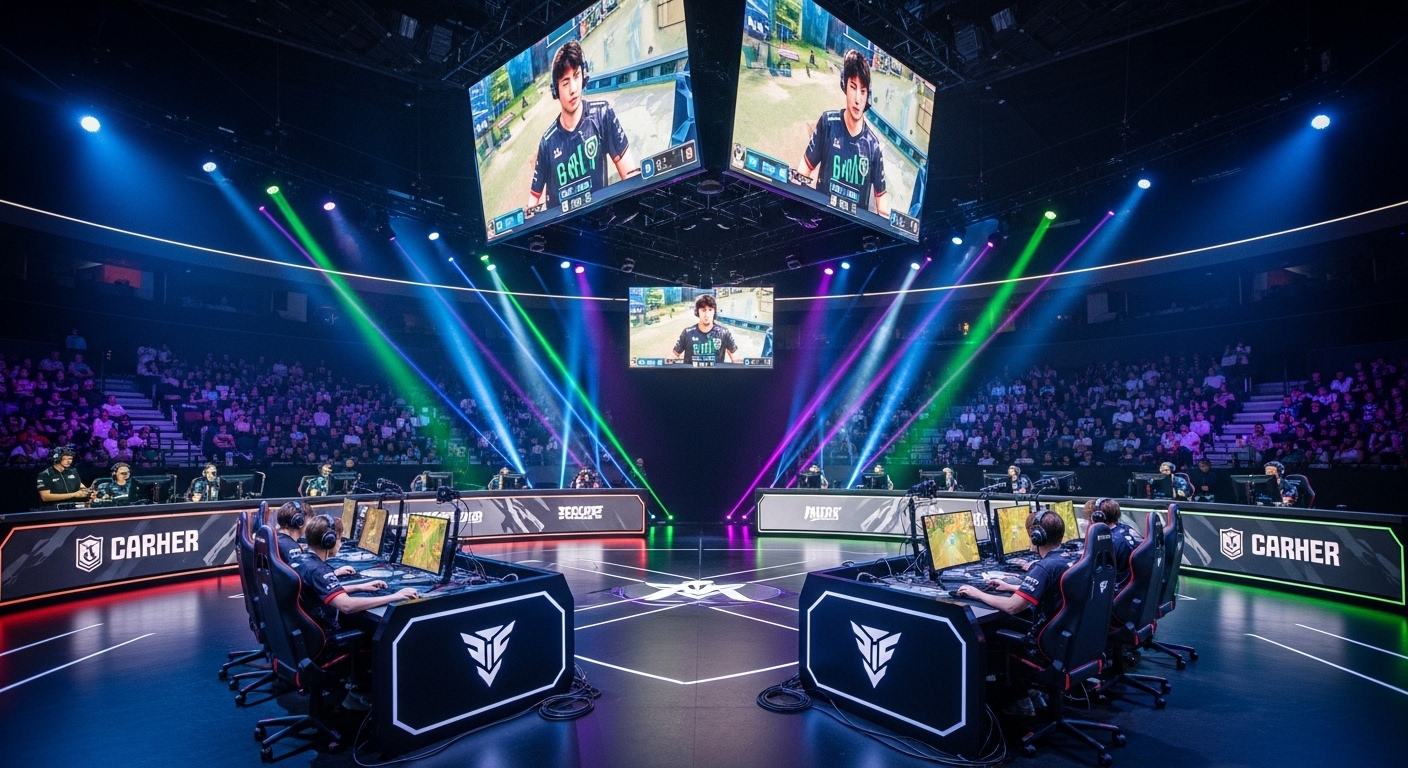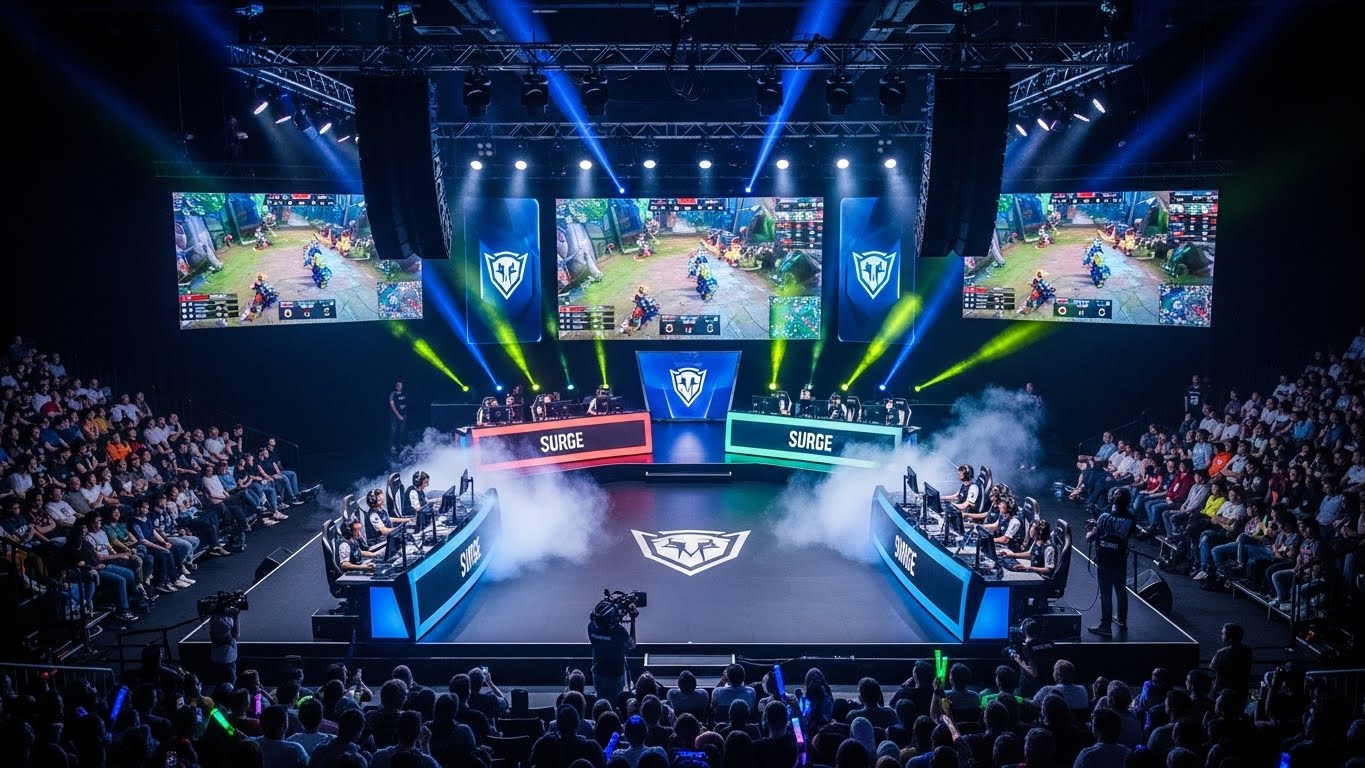Introduction
Esports, or electronic sports, has become one of the fastest-growing industries in the modern entertainment world. What began as small-scale gaming competitions among enthusiasts has now transformed into a billion-dollar global phenomenon. Esports is not just about playing video games; it represents a blend of technology, strategy, teamwork, and global connectivity. With millions of players and fans across the globe, esports has redefined the meaning of competition and entertainment in the digital age.
This blog explores the rise, development, and impact of esports on society, culture, and the economy. It also examines the journey of professional players, the role of technology, and how esports has become a career path and a global movement.
The Origins of Esports
The history of esports can be traced back to the early days of video gaming in the 1970s and 1980s. The first known competitive gaming event took place in 1972 at Stanford University, where players competed in the game Spacewar!. While this event was modest compared to today’s massive tournaments, it marked the beginning of organized video game competition.
In the 1980s, the rise of arcade games such as Pac-Man, Donkey Kong, and Street Fighter began to create local and regional competitions. Players competed to set high scores and gain recognition within their communities. The introduction of the internet and personal computers in the 1990s accelerated the development of online gaming and competitive play. Titles like StarCraft, Quake, and Counter-Strike became the foundation of early esports tournaments, connecting players across continents.
The Growth of Competitive Gaming
The early 2000s saw the birth of organized esports leagues and professional teams. South Korea became the first country to truly embrace esports as a legitimate profession, with the creation of television channels dedicated to broadcasting matches. Games like StarCraft: Brood War attracted millions of viewers and established the idea that professional gamers could gain celebrity status.
As broadband internet became more accessible, online multiplayer games expanded rapidly. Titles such as Dota, League of Legends, Call of Duty, and Counter-Strike: Global Offensive became staples of the competitive gaming scene. These games introduced structured tournaments, ranking systems, and professional organizations. Sponsorships and prize pools grew, making esports a viable career path for talented players.
The Role of Technology in Esports
The advancement of technology has been the backbone of esports evolution. High-speed internet connections, powerful gaming hardware, and streaming platforms have all contributed to the success of competitive gaming. Modern esports events rely on sophisticated equipment, including high-refresh-rate monitors, advanced controllers, and optimized gaming setups that ensure fairness and precision.
Streaming platforms such as Twitch and YouTube Gaming have revolutionized how fans interact with esports. Viewers can watch their favorite players live, chat with other fans, and even donate to support their idols. This direct interaction has created a community-driven environment that traditional sports rarely achieve. Virtual reality and augmented reality are also emerging as new frontiers in esports, promising immersive experiences that blur the line between the real and digital worlds.
The Rise of Esports Organizations and Leagues
Professional esports organizations now operate much like traditional sports teams. They have coaches, analysts, nutritionists, and training facilities designed to enhance player performance. Teams such as Team Liquid, Fnatic, Cloud9, and T1 are recognized worldwide, boasting millions of followers and securing sponsorships from major brands.
Global tournaments such as The International for Dota 2, League of Legends World Championship, and Fortnite World Cup attract enormous audiences both online and in stadiums. The prize pools for these events often reach tens of millions of dollars, with players earning fame and wealth rivaling that of athletes in traditional sports. Esports leagues are also expanding into franchised systems, where teams represent specific cities or regions, similar to the structure of football or basketball leagues.
The Cultural Influence of Esports
Esports has had a profound impact on modern culture, particularly among younger generations. It has redefined entertainment, where watching others play games has become as engaging as playing them. Gaming celebrities and streamers influence fashion, music, and lifestyle trends. Esports events fill stadiums, and fans wear team jerseys just like in traditional sports.
The community aspect of esports is one of its most powerful features. Players from different backgrounds, countries, and languages unite under the banner of shared passion. Online gaming has fostered friendships and rivalries that transcend borders. Additionally, esports has provided a platform for inclusivity, allowing individuals who may not excel in physical sports to showcase their talents and achieve recognition.
Esports as a Career Path
For many young gamers, esports is no longer just a hobby—it is a legitimate career option. Professional players, coaches, commentators, content creators, and event organizers form a vast ecosystem that supports the industry. The path to becoming a professional player requires dedication, discipline, and consistent practice. Many teams now offer structured training programs and mentorship opportunities for aspiring players.
Beyond playing, numerous career opportunities exist in marketing, broadcasting, event management, and game design. Educational institutions have started offering scholarships for esports players, and some universities have established dedicated esports programs. These initiatives recognize the strategic thinking, teamwork, and problem-solving skills that gaming nurtures.
The Economic Impact of Esports
The global esports market has grown exponentially over the past decade. Revenues are generated through sponsorships, advertising, ticket sales, merchandise, and media rights. Brands from various sectors—technology, energy drinks, fashion, and even automobile companies—are investing heavily in esports sponsorships.
Cities around the world are also capitalizing on esports by hosting major tournaments that attract tourism and business opportunities. Countries like China, South Korea, and the United States lead the industry, but emerging markets in Southeast Asia, Europe, and the Middle East are quickly catching up. The economic potential of esports extends beyond competition, influencing the broader gaming and technology industries.
Esports and Education
Esports has entered the academic world, with schools and universities recognizing its educational value. Programs focused on game strategy, management, and broadcasting are becoming more common. Esports encourages students to develop skills such as teamwork, leadership, critical thinking, and communication. Schools are forming competitive esports teams, giving students a chance to represent their institutions in national and international tournaments.
The inclusion of esports in education also promotes digital literacy, a critical skill in the 21st century. Students learn about technology, media production, and online community management. Furthermore, esports provides a new avenue for social interaction and collaboration, particularly for students who may not participate in traditional sports.
Challenges Faced by the Esports Industry
Despite its success, esports faces several challenges. One major issue is player burnout. The intense pressure to perform, coupled with long practice hours, can lead to physical and mental exhaustion. Unlike traditional athletes, many professional gamers retire at a young age due to stress or declining reflexes.
Cheating, match-fixing, and performance-enhancing software are other concerns that threaten the integrity of competition. Organizations are implementing stricter regulations and anti-cheat systems to ensure fair play. Additionally, the lack of standardized governance across different games makes it difficult to enforce consistent rules and player protections.
Another challenge is the perception of gaming addiction and its impact on young players. Balancing screen time, education, and health is essential for maintaining a sustainable esports environment. However, with proper guidance and structure, gaming can be both productive and rewarding.
The Future of Esports
The future of esports looks promising, with continuous technological innovation and growing global recognition. Virtual reality and artificial intelligence will likely shape the next generation of competitive gaming. As 5G and cloud gaming technologies expand, players will experience faster, smoother, and more immersive gameplay.
The potential inclusion of esports in multi-sport events such as the Olympics demonstrates its growing legitimacy. Esports could soon stand alongside traditional athletic competitions as a recognized global sport. Moreover, the integration of esports with entertainment industries such as music and film will create new forms of interactive experiences.
As more people embrace gaming, esports will continue to bridge cultural divides and inspire creativity. The industry’s growth also presents opportunities for responsible development, including better mental health support, sustainable business practices, and equal representation for all genders and communities.
The Social Impact of Esports
Esports has created spaces for communities to connect and collaborate. Online gaming has become a powerful tool for social interaction, particularly during times of global crisis, such as the pandemic. Virtual tournaments allowed people to stay connected, compete, and find joy despite physical isolation.
Esports also contributes to charity and social awareness. Many organizations host charity streams and tournaments to support global causes, raising millions for humanitarian efforts. The ability of esports to mobilize communities for good highlights its potential beyond entertainment.
Gender Diversity in Esports
Gender diversity remains an evolving aspect of esports. Historically, competitive gaming has been male-dominated, but this is gradually changing. Female players, commentators, and content creators are gaining visibility and respect within the community. Initiatives promoting gender equality and inclusivity are helping to create a more balanced environment.
Women-only tournaments, mentorship programs, and awareness campaigns are breaking stereotypes and encouraging more women to participate. The growth of inclusive gaming spaces reflects the broader social progress toward equality and representation.
Conclusion
Esports is more than just a trend—it is a cultural revolution that has reshaped how people play, watch, and interact. From humble beginnings to a global industry worth billions, esports stands as a testament to human creativity, competition, and technological advancement. It has become a bridge between entertainment and education, between digital and real-world experiences, and between individuals and communities across the planet.
As the industry continues to evolve, esports will remain a symbol of modern innovation and unity. Its influence on culture, economy, and society is undeniable, and its story is far from over. The rise of esports represents not just the power of gaming but the limitless potential of human imagination in the digital age.




